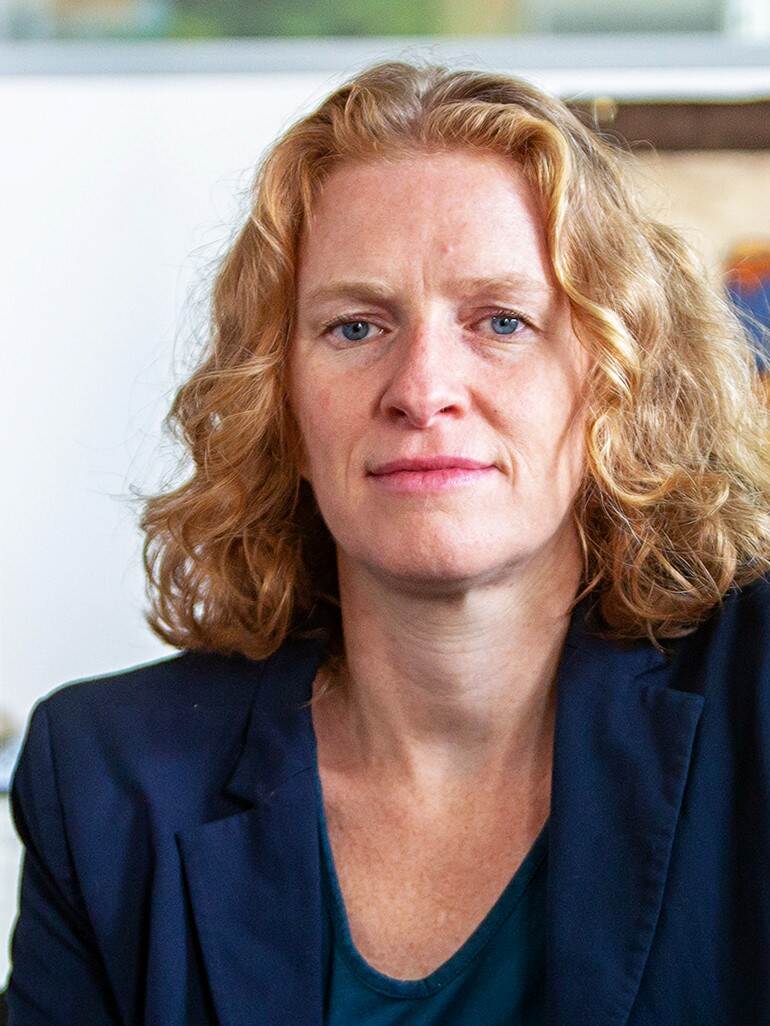
Heleen de Coninck
- Works at
- Eindhoven University of Technology
A brief introduction to ...
Scientific challenges for KiM
In 2050, the global CO2 emissions need to be net zero to prevent the very worst of climate change, and in 2030 they need to be roughly halved compared to now. As a well-organised, rich country with a relatively carbon-intensive economy and a high level of CO2 emissions, the Netherlands would have to reduce even faster than the global average, to allow countries with lower contributions to climate change and lower capabilities to take more time. The required speed of reductions in CO2 emissions are unimaginable without systemic changes. Replacing gasoline vehicles with electric ones is part of the solution, but not sufficient. The need for system change, also in mobility, has far-reaching consequences for the mobility sector in the Netherlands, for both transport and passenger mobility, as well as for international transport via planes and ships and national and local infrastructure. What the needed systemic transitions consist of, how they can be accelerated, how the burdens and benefits of the transition can be distributed fairly, and how this can land in the Ministry's policies: those are some of the most important research challenges for KiM.
Research to be proud of
With about ninety researchers from around the world, I have written the Special Report on Global Warming of 1.5°C (2018) of the Intergovernmental Panel on Climate Change (IPCC). The conclusions of this report – that the consequence of 2°C of global warming are much more serious than those of 1.5°C of warming, and that it is still possible to limit warming to 1.5C, if we act quickly and decisively in accelerating systems transitions – have increased the global ambition to address climate change. From Shell to the European Commission, and from the financial system to the Chinese government: emission targets are coming more and more in line with lower temperature pathways. Now implementation also has to happen.
Affinity with KiM knowledge lines
Within KiM I have most affinity with the knowledge line 'Duurzaamheid en gebieden'. However, as much of my research is about policy instruments, I am also interested in 'Beleidsevaluaties en de rol van de overheid'.
Position and core scientific research
As an impact-driven social scientist with a natural science background, I aim to conduct research that contributes to solving climate change in connection with other societal challenges. My research focuses on three areas: 1) How can the systems transition be accelerated fairly by a self-reinforcing combination of the enabling conditions of behaviour, finance, policy instruments, institutional capacity, innovation and multi-level governance? 2) What policies can put the Dutch materials industry on a path to climate neutrality in 2050 or earlier? And 3) What can international organisations do to make innovation and technology transfer work for developing countries, and speed up system transitions?
Scientific background
After my master's degrees in both Chemistry and Environmental Science, I thought I wanted to become an atmospheric chemistry researcher. However, I discovered that societal questions interest me even more. I worked for over ten years at the Policy Studies unit of the Energy research Centre of the Netherlands, now part of TNO, as a researcher, group manager and programme manager. Besides my work there, I did a PhD at the VU University of Amsterdam on the role of technology in international climate policy, which I finalised in 2009. Since 2012, I am an associate professor at Radboud University's Faculty of Science, and I still work there one day per week. Since 2020, I am also a full professor at Eindhoven University of Technology’s Technology, Innovation & Society-group.